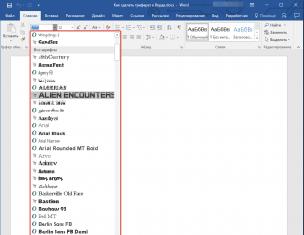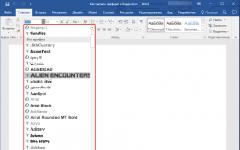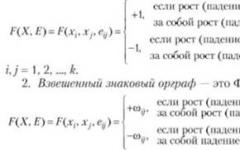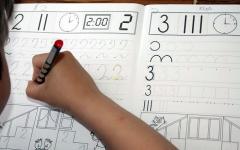Вводный урок. 1. About myself. 2. My working day. 3. My Academy. 4. My Home Town. 5. Russia is my Homeland. 6. The United Kingdom. 7. The United States of America. 8. Higher Education in the UK. 9. My future profession. 10. Metals. 11. Metalworking. 12. Materials Science and Technology. 13. Machine-tools. 14. Plastics. 15 Welding. 16. Automation and robotics. 17. Computers. 18. Modern computer technologies.
Тексты для дополнительного чтения. 1. Alloys. 2. Manufacturing of plastics.
3. Principles and process of polymerisation in plastics production. 4. Resins. 5. Industrial plastics: rigid and flexible foams. 6. Basic principles of welding. 7. Gear. 8. Bearings. 9. Construction of an automobile. 10. Two-Stroke and Diesel Engines. 11. 0Direct-Current (DC) Generators. 12 AC Motors. 13. Engineering as a profession. 14. Automation in Industry. 15. Fixed and programmable automation. 16. History of Robotics. 17. Measurements. 18. Computers. 19.History and Future of the Internet. 20.Agricultural Machinery.
I. Гласные звуки [i], .
II. Text A: «About myself»,
Text B : « My Biography ».
III . Личные местоимения, определенный и неопределенный артикль, множественное число существительных.
Phonetic warm - up (Фонетическая разминка)
Гласный звук [ i ] При произнесении краткого гласного звука [i] кончик языка находится у основания нижних зубов: оттенок русского звука [и] в словах шить, шило практически совпадает с английским [i]:it , sit , in
Гласный звук [ i :] При произнесении долгого гласного язык продвинут вперед, кончик языка касается нижних зубов, губы несколько растянуты и слегка обнажают зубы. Оттенок русского звука [и] в словах ива, иго, игры, избы практически совпадает с английским звуком .
Сочетания ее, еа - читаются . Например, meet , peat .
Долгота звука влияет на лексическое значение слова.
Например: feet (ноги) - fit (вмещаться), steel (сталь) -still (все еще)
|
if - it - tip - kit sit - seat Exercise В |
feel - fill - feet fit - eat - bean simple - Pete - feel - peel meet - meat - ill - bill - steel - feel Exercise D be - been - bean |
|
lid - lead Exercise С |
me - meet - meat see - seat - seed meal - seal - mean pea - Pete - peat sea - see - meet bee - been - feet mean - lean - keen |
Exercise E
I see a sea. I see a clean sheet. I eat meat. I like meat.
I like tea. I make tea. I take tea. I like fine tea. I like fine meals.
People make steel. People make fine steel. People make steel pipes. People make fine steel planes. I like life. I like kind people. I like kind smiles. I feel fine. I smile.
Вводный урок.
1. About myself.
2. My working day.
3. My Academy.
4. My Home Town.
5. Russia is my Homeland.
6. The United Kingdom.
7. The United States of America.
8. Higher Education in the UK.
9. My future profession.
10. Metals.
11. Metalworking.
12. Materials Science and Technology.
13. Machine-tools.
14. Plastics.
15 Welding.
16. Automation and robotics.
17. Computers.
18. Modern computer technologies.
Тексты для дополнительного чтения.
1. Alloys.
2. Manufacturing of plastics.
3. Principles and process of polymerisation in plastics production.
4. Resins.
5. Industrial plastics: rigid and flexible foams.
6. Basic principles of welding.
7. Gear.
8. Bearings.
9. Construction of an automobile.
10. Two-Stroke and Diesel Engines.
11. 0Direct-Current (DC) Generators.
12 AC Motors.
13. Engineering as a profession.
14. Automation in Industry.
15. Fixed and programmable automation.
16. History of Robotics.
17. Measurements.
18. Computers.
19.History and Future of the Internet.
20.Agricultural Machinery.
UNIT 1
ABOUT MYSELF
I. Гласные звуки [i], .II. Text A: «About myself»,
Text B : « My Biography ».
III
. Личные местоимения, определенный и неопределенный артикль, множественное число существительных.
Phonetic
warm
-
up
(Фонетическая разминка)
Гласный звук [ i ] При произнесении краткого гласного звука [i] кончик языка находится у основания нижних зубов: [и] в словах шить, шило практически совпадает с английским [i]: it , sit , in
Гласный звук [ i :] При произнесении долгого гласного язык продвинут вперед, кончик языка касается нижних зубов , губы несколько растянуты и слегка обнажают зубы. Оттенок русского звука [и] в словах ива, иго, игры, избы практически совпадает с английским звуком .
Сочетания ее, еа - читаются . Например, meet , peat .
Долгота звука влияет на лексическое значение слова.
Например: feet
(ноги) - fit
(вмещаться), steel
(сталь) - still
(все еще)
Exercise Alead - lidif - it - tip - kit Exercise
В
| beat - bin feel - fill - feet fit - eat - bean simple - Pete - feel - peel meet - meat - ill - bill - steel - feel Exercise D be - been - bean |
| did - deed Exercise С bin - bean | me - meet - meat see - seat - seed meal - seal - mean pea - Pete - peat sea - see - meet bee - been - feet mean - lean - keen |
Exercise E
I see a sea. I see a clean sheet. I eat meat. I like meat.
I like tea. I make tea. I take tea. I like fine tea. I like fine meals.
People make steel. People make fine steel. People make steel pipes. People make fine steel planes. I like life. I like kind people. I like kind smiles. I feel fine. I smile.
Text A: “ABOUT MYSELF”
Hello, friends. Let me first introduce myself. My name is Ann or Anya for my friends. My surname or last name is Sokolova. I was born on the 2 nd of October in Sochi, Krasnodarsky Krai. This is the most beautiful city in Russia situated on the Black Sea coast. Now I am a first-year student at the Technical Academy. In five years I"ll be an engineer.Now let me describe my appearance . I am tall and slim and have fair hair and blue eyes. My friends say that I am pretty. I think I am just good-looking. I love sports and music. I was very serious about a career in gymnastics when I was in the 5 th form. But then I broke my arm and doctors didn"t let me go in for gymnastics. I love to listen to modern music and dance. I dance a lot and I hope I am good at it. I also love swimming. I always swim in the Black sea when I visit my parents, my dear family.
I would like to tell you about my family. There are five people in our family. My father"s name is Vladimir Stepanovich. He is a mathematician by education and businessman by profession. My mother"s name is Tatyana Petrovna. She is a housewife . She has much work about the house because I have a younger sister. She is a pupil. My sister Natasha is in the fifth form. My grandmother, my mother"s mother, lives with us. She is very kind and helps us a lot.
Our family is very friendly, we have many friends. In summer many relatives come to visit us. And, of course, they use a chance to spend several weeks in beautiful Sochi.
In May I have finished school No 5 in Sochi. I did well in all the subjects but my favourite subjects at school were Physics and Computer Science. I also enjoyed English lessons.
I am very interested in learning English because I always wanted to become a programmer or maybe a businesswoman. I also think that the knowledge of foreign languages helps in everyday life and career.
Two years ago I travelled much around Europe. I have visited France, Germany, Belgium, the Netherlands and the United Kingdom . There the knowledge of English helped me a lot.
As you see," my biography isn"t very long yet. But we"ll meet again in the next lesson and I"ll tell you more about myself. See you later...
Vocabulary:
introduce - представлять, знакомить
Black Sea coast - побережье Черного моря
a first-year student - студент(ка) первого курса
region - область
appearance - внешность
slim - стройная
career - карьера
gymnastics - гимнастика
mathematician - математик
housewife - домохозяйка
several - несколько
to do well - зд. успевать
chance - случай, шанс
kind - добрый
a lot - много
the Netherlands - Нидерланды
the
United
Kingdom
- Соединенное Королевство (Великобритания)
ADD TO YOUR ACTIVE VOCABULARY
(ПОПОЛНИ СВОЙ АКТИВНЫЙ СЛОВАРЬ):
tall - высокий
short - маленького роста
stout - приземистый, коренастый
slim - стройный
fat - толстый
plumpy - полный
fair hair - светлые волосы
blonde - блондин(ка)
brunette - брюнет(ка)
gray hair - седые волосы
bold headed - лысый
short sighted - близорукий
smart, clever, bright - умный (я)
stupid - тупой, глупый
boring - скучный
fun to be with - веселый человек
quiet - спокойный
impulsive - порывистый, импульсивный
aggressive - агрессивный
rude - невежливый, грубый
shy , confused - застенчивый
active - активный
talkative - разговорчивый
enthusiastic - энтузиаст, затейник
Exercise 1.1. Please, introduce yourself. The questions below will certainly help you:
1. What is your name?
2. Where and when were you born?
3. How old are you?
5. Have you got a family?
6. How many people are there in your family?
7. Do you have brothers, sisters, grandparents in your family?
8. Where do you live?
9. Did you study well at school?
10. What school did you finish?
11. Did your teacher of English help you to choose your future profession?
12. What was your favourite subject?
13. What do you like to read?
14. What sport do you go in for?
15. What are you going to be?
16. Do you still live with your parents?
17. Do you have a girlfriend / boyfriend?
Exercise 1.2. Bring a picture of a person you know well (mother, father, grandfather, friend) to class. Show it and describe that person. Use the active vocabulary of the unit.
Учебное пособие соответствует программе по английскому языку для технических вузов. Первая часть охватывает повторительный курс фонетики, основные тематические разделы. В нее включен повторительный курс грамматики, ряд закрепительных упражнений.
Вторая часть содержит основные разделы: металлы и металлообработка, пластмассы и композитные материалы, станки и оборудование, сварка, автоматизация и робототехника, компьютерные технологии.
Предназначено для студентов технических вузов. Может быть использовано студентами колледжей и для самостоятельного обучения.
Звуки и письмо.
В результате сложного исторического развития данного языка и системы его письменности возникло значительное рассогласование между графическим образом (написанием) слова и его звуковым составом (произношением), что привело к системе специальной записи звукового образа слова - фонетической транскрипции. Транскрипционные значки звуков пишутся раздельно и заключаются в квадратные скобки.
В английском алфавите имеется 20 согласных и 6 гласных букв. Однако некоторые согласные имеют двойное чтение, сочетания двух согласных могут передавать один согласный звук, а 6 гласных букв передают 20 гласных звуков в зависимости от положения гласной в слове (ударное или неударное) и от типа слога (открытый или закрытый). Поэтому для успешного изучения языка были разработаны типичные для современного английского языка правила звуко-буквенных соответствий, при помощи которых можно прочесть наибольшее количество слов.
Содержание
От автора
Вводный урок
Part I
Unit 1. About myself
Unit 2. My working day
Unit 3. My Academy
Unit 4. My Home Town
Unit 5. Russia is my Homeland
Unit 6. The United Kingdom
Unit 7. The United States of America
Unit 8. Higher Education in the UK
Unit 9. My future profession
Part II
Unit 1. Metals
Unit 2. Metalworking
Unit 3. Materials Science and Technology
Unit 4. Machine-tools
Unit 5. Plastics
Unit 6. Welding
Unit 7. Automation and robotics
Unit 8. Computers
Unit 9. Modern computer technologies
Reader
Тексты для дополнительного чтения
1. Alloys
2. Manufacturing of plastics
3. Principles and process of polymerisation in plastics production
3. Resins
4. Industrial plastics: rigid and flexible foams
5. Basic principles of welding
6. Gear
7. Bearings
8. Construction of an automobile
9. Two-Stroke and Diesel Engines
10. Direct-Current (DC) Generators
11. AC Motors
12. Engineering as a profession
13. Automation in Industry. Fixed and programmable automation
14. History of Robotics
15. Measurements
16. Computers
17. History and Future of the Internet
18. Agricultural Machinery
Appendix A
Appendix В
Appendix C.
Бесплатно скачать электронную книгу в удобном формате, смотреть и читать:
Скачать книгу Английский для технических вузов, Агабекян И.П., Коваленко П.И., 2004 - fileskachat.com, быстрое и бесплатное скачивание.
- Английский язык для экономистов, Агабекян И.П., Коваленко П.И., 2005 - Учебное пособие соответствует государственному образовательному стандарту и требованиям программы по английскому языку для неязыковых вузов. Оно рассчитано на 4-6 семестров … Книги по английскому языку
- Английский язык для экономистов, Агабекян И.П., Коваленко П.И., 2004 - Учебное пособие соответствует государственному об разовательному стандарту и требованиям программы по английскому языку для неязыковых вузов. Оно рассчитано на 4 … Книги по английскому языку
- Английский для инженеров, Агабекян И.П., Коваленко П.К., 2002 - Учебное пособие для студентов технических вузов па первом п втором этапах обучения соответствует программе по английскому языку для вузов неязыковых … Книги по английскому языку
- Английский для технических вузов, Агабекян И.Л., Коваленко П.И. - Гласный звук i При произнесении краткого гласного звука i кончик языка находится у основания нижних зубов: оттенок русского звука и … Книги по английскому языку
Следующие учебники и книги:
- Английский язык, Книга для чтения, Тер-Минасова С.Г., Узунова Л.М., Обукаускайте Д.С., Сухина Е.И., 2012 - Книга для чтения является обязательным компонентом учебно-методического комплекта по английскому языку. Она тематически связана с Учебником, включает тексты, соответствующие возрастным … Книги по английскому языку
- Грамматика английского языка, Книга для родителей, 5 класс, Барашкова Е.А., 2013 - Данное пособие полностью соответствует федеральному государственному образовательному стандарту (второго поколения). Оно представляет собой третью часть учебного комплекта, состоящего из четырёх … Книги по английскому языку
- Английский язык, 2 класс, Часть 2, Тер-Минасова С.Г., Узунова Л.М., Обукаускайте Д.С., Сухина Е.И., 2012 Книги по английскому языку
- Английский язык, 2 класс, Часть 1, Тер-Минасова С.Г., Узунова Л.М., Обукаускайте Д.С., Сухина Е.И., 2012 - Учебник разработан в соответствии с требованиями федерального государственного образовательного стандарта начального общего образования по иностранному языку. Содержание учебника обеспечивает обучение … Книги по английскому языку
Предыдущие статьи:
- Англия и английский язык для иностранцев, Английская лексика, Уайатт Р., 2010 - Эта книга предназначена для тех, кто владеет английским на среднем или продвинутом уровне. Она будет особенно полезна учащимся, которые готовятся … Книги по английскому языку
- Лексико-грамматические задания по английскому языку, 5 класс, пособие для учащихся общеобразовательных учреждений с русским языком обучения с 12-летним сроком обучения, Рябцева С.В., 2008 - Пособие содержит разноуровневые задания по английскому языку за курс 5-го класса, которые направлены на активизацию у учащихся таких речемыслительных процессов, … Книги по английскому языку
- Легенды о короле Артуре, адаптация текста, предисловие, коммент, упражнения, словарь Вороновой Е.Г., 2008 - Небольшие по объему легенды о короле Артуре можно использовать для чтения и обсуждения в рамках одного академического часа на уроках … Книги по английскому языку
- Простые и эффективные способы запоминания английских слов, Лавренюк М.В., 2006 - Книга представляет наиболее употребительную лексику английского языка, необходимую для общения в официальной сфере и в быту. Все предложенные английские слова … Книги по английскому языку
Английский для технических вузов. Агабекян И.П., Коваленко П.И.

Р. на Д.: 2004 - 352 с.
Учебное пособие соответствует программе по английскому языку для технических вузов. Первая часть охватывает повторительный курс фонетики, основные тематические разделы. В нее включен повторительный курс грамматики, ряд закрепительных упражнений. Вторая часть содержит основные разделы: металлы и металлообработка, пластмассы и композитные материалы, станки и оборудование, сварка, автоматизация и робототехника, компьютерные технологии. Предназначено для студентов технических вузов. Может быть использовано студентами колледжей и для самостоятельного обучения.
Формат: pdf (2004, 352с.)
Размер: 60 Мб
Смотреть, скачать:
drive.google
Формат: doc
Размер: 1,1 Мб
Смотреть, скачать: drive.google
СОДЕРЖАНИЕ
От автора 5
Вводный урок 8
Part I
Unit 1. About myself 18
Unit 2. My working day 36
Unit 3. My Academy 52
Unit 4. My Home Town 62
Unit 5. Russia is my Homeland 76
Unit 6. The United Kingdom 94
Unit 7. The United States of America Ill
Unit 8. Higher Education in the UK 125
Unit 9. My future profession 135
Part II
Unit 1. Metals 148
Unit 2. Metaiworking 159
Unit 3. Materials Science and Technology 173
Unit 4. Machine-tools 183
Unit 5. Plastics.. 196
Unit 6. Welding 208
Unit 7. Automation and robotics 216
Unit 8. Computers 228
Unit 9. Modern computer technologies 246
Reader Тексты для дополнительного чтения
1. Alloys 264
2. Manufacturing of plastics 265
3. Principles and process of polymerisation in plastics production 269
3. Resins . 272
4. Industrial plastics: rigid and flexible foams 278
5. Basic principles of welding 280
6. Gear 285
7. Bearings 288
8. Construction of an automobile 291
9. Two-Stroke and Diesel Engines 299
10. Direct-Current (DC) Generators 301
11. AC Motors 303
12. Engineering as a profession 306
13. Automation in Industry Fixed and programmable automation 311
14. History of Robotics 315
15. Measurements 317
16. Computers 320
17. History-and Future of the Internet 322
18. Agricultural Machinery 323
Appendix A 327
Appendix В 328
Appendix С 339
Задача, поставленная перед нами практической преподавательской деятельностью
была очень непростой - нужно было создать универсальное учебное пособие для
студентов всех технических ВУЗов. Но единой «технической» специальности не
существует. Спектр технических специальностей настолько разнообразен, что
единственным способом определить круг студентов (читательскую аудиторию)
является отбросить все нетехнические специальности - гуманитарные.
Кроме того» студенты-технари» на старших курсах приобретают специальности,
уникальные для своего региона и нужд местной промышленности Для того, чтобы
сделать учебник максимально универсальным, мы разбили книгу на две части.
Тематический текст (являющийся также и полно изложенной устной темой) составляет
основу каждого из девяти уроков первой, общей части, В первой, общей части,
предназначенной для студентов всех технических специальностей, предлагаются
обязательные вузовские темы: About myself (О себе), My working day (Мой рабочий
день), My Academy (Мой ВУЗ), цикл страноведческих тем - Great Britain, London,
USA, Transport Industry, Russian Federation, Moscow, My Home Town.









